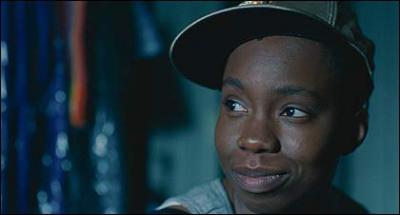In 2007, Dee Rees wrote and directed a short film, Pariah, about a black teen in Brooklyn struggling to come to terms with her identity as a lesbian. Rees — who interned for Spike Lee’s 40 Acres program — went on to direct two more shorts before returning to the compelling drama of a teenaged protagonist who, in her search for sexual identity, shuffles through personas like masks at a costume ball. In fleshing out the character of Alike and further deepening the teen’s social and domestic milieus, Rees has fashioned Pariah into a full-length feature that is as urgent, moving and meaningful as anything released this year.
The pitfalls of Rees’s subject matter are so vast and inertial they seem almost insurmountable — the gravitational pull of the black/teen/poet/lesbian complex has Afterschool Special written all over it. Pariah, however, is anything but a pat treatment of a subject that is, ironically, both culturally misunderstood and artistically pre-loaded with melodrama. Although Alike (Adepero Oduye) does experience the multifarious difficulties of coming out, she is hardly a pure victim; she is driven less by outrage at her predicament than by confusion, pride and the universal compulsions of desire. In other words, she is a teenager, and she wants a girlfriend.
Director Rees, thanks in part to the gorgeous cinematography of Bradford Young, lends an aura of gritty authenticity to Alike’s environment, whether that is school, her social scene or life at home. Alike is a good student with a gift for poetry, and her best friend, Laura (Pernell Walker), is flamboyantly out and proud. At home, Alike is constantly sparring with her nosy little sister (Sahra Mellesse), but it is in the depiction of her parents, Arthur (Charles Parnell) and Audrey (Kim Wayans), that Rees pulls off a minor miracle; the representation of the parental dynamic is subtle, complex and multivalent, with forces of denial and sympathy revealed in ways that are refreshingly unpredictable (as when her father, a cop, says with devastating weariness that he is “tired of this whole tom boy thing”).
Pariah is woven together with small, authentic moments — such as when Alike quickly changes, superhero-like, out of her girly school clothes into butch duds — that accumulate and gain momentum, though the momentum created is hardly a Rocky-like triumph for the Closeted Gays of America. Rather, the movie gathers its power in the progress of daily life, with its telling details and hidden truths. When Alike recites “I am not broken, I am free,” her words, neither open defiance nor universal rallying cry, are simply an affirmation of identity, and their idiosyncratic poetry registers with a shock of recognition. “I’m not leaving,” Alike tells her parents before she departs for Berkeley. “I’m choosing.”
Pariah opens Friday, Feb. 17, at Bijou Cinemas; info & times at bijou-cinemas.com
